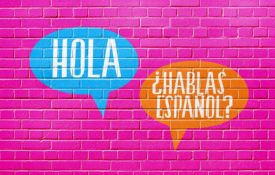-
You’re Probably Not As Open-Minded As You Think. Here’s How To Practice
... Recognize that your biological hardware isn't exactly setting you up for success. I have bad news for you about your brain: you don't fully know what it's up to. That might sound ridiculous. But in fact, there are tons of things that your brain does without your conscious control, everything from breathing to making split-second associations between things. And those associations aren't always good ones. There's plenty of research in psychology to show that almost everybody in the world has what are called "implicit biases." These are ideas and associations that we pick up from the world around us without even knowing about them.
-

Statement on Racism, Bias, and Intolerance
The APS Board has approved this statement on racism, bias, and intolerance.
-

New Content from Advances in Methods and Practices in Psychological Science
A special section, with seven tutorials introducing the use of simulations in developing statistical intuitions.
-

New Research From Clinical Psychological Science
A sample of research on COVID-19 and mental health, early peer relations and psychopathology, cognitive behavioral therapy, machine learning to classify risk of suicide, intelligence and psychopathology, threats, anxiety, and aggression.
-

Little to No Increase in Association Between Adolescents’ Mental Health Problems and Digital Technology Engagement, Study Says
A new study in Clinical Psychological Science suggests that there has been little to no increase in the association between adolescents’ technology engagement and mental health problems.
-

¡Hola! Cómo estás? Speaking Spanish May Protect Your Heart
By providing wider access to emotion words, creating the potential for more optimism, and enhancing social relations, the Spanish language may influence how individuals build emotion schemas and appraise stress, influencing cardiovascular reactivity and recovery.

